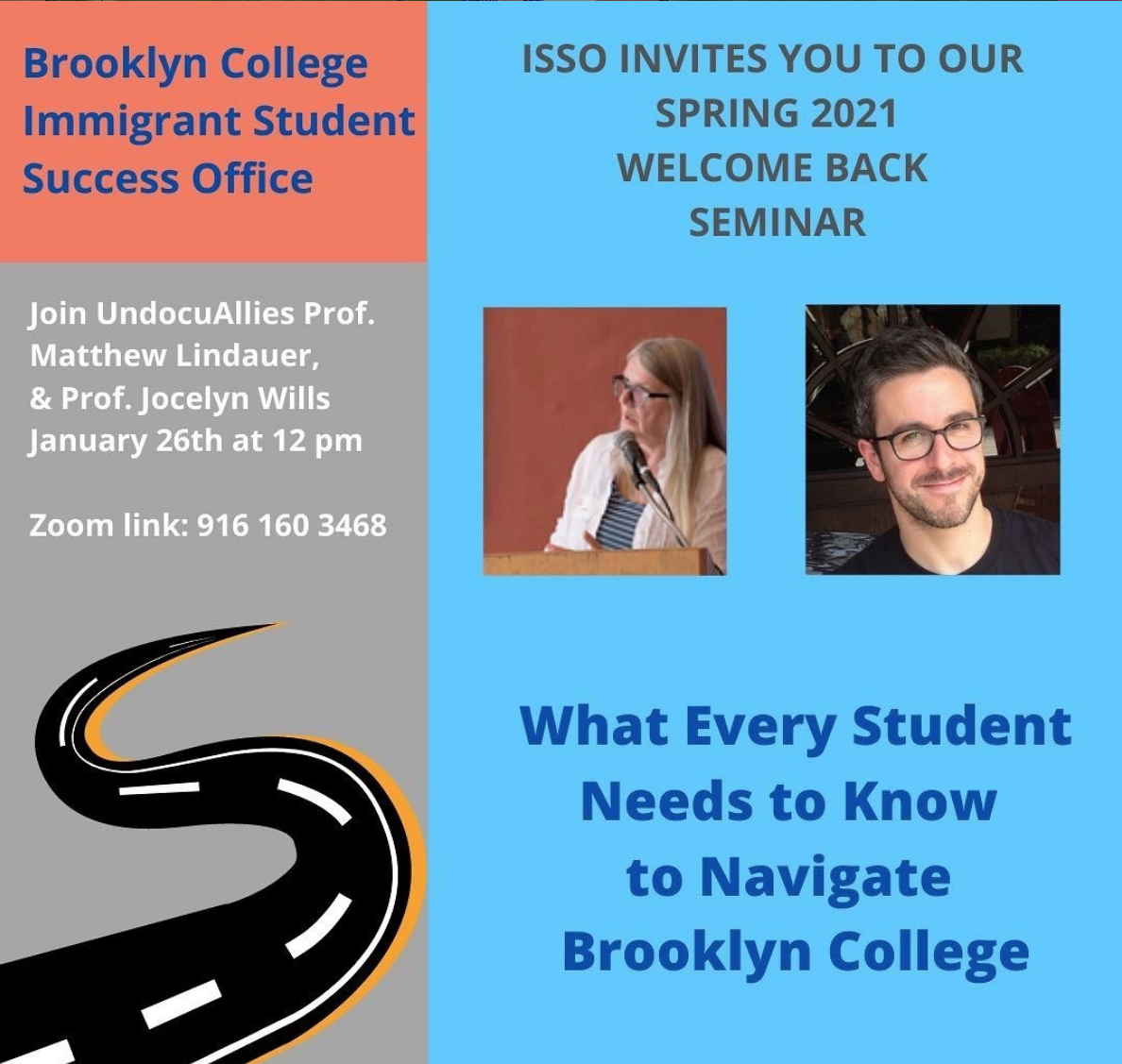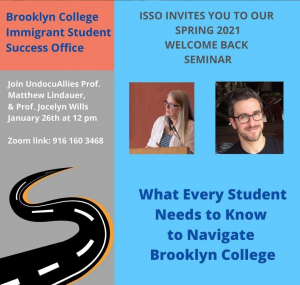

Before the making of Brooklyn College’s Immigrant Student Success Office, there were the UndocuAllies who pledged to stand beside undocumented and DACAmented students. With the goal of helping students navigate through BC, America’s growing hostility against immigrants, and their future plans, these faculty members pushed for ISSO’s establishment.
“We just wanted to make sure that people knew they were not alone,” said Jesús Pérez, Director of ISSO.
Dating back around 20 years, the UndocuAllies first began when there were student-led demands for more immigrant support services. Over a decade later, and with the fear generated by former President Trump’s immigration policies, UndocuAllies decided to form their UndocuAlly Training in 2019 to help educate BC’s faculty of the immigrant experience. From reviewing the different immigrant statuses to understanding legal services, the program intends to equip prospective allies with the knowledge they need to best aid students.
“We started the conversations by saying, ‘This is the place where we can discuss. But when it comes to dealing with students, they’re not the ones that should be opening up to you,” said Pérez. “Rather, you should know this as part of your job.”
Before remote learning, UndocuAllies and students were able to build trust and relationships with one another more easily.
“It was different when people could come into an office and have a space to work at a computer, or to talk to people. It was just more organic and natural than having these kinds of interactions over cyberspace,” said Sociology Professor Carolina Bank Muñoz, a faculty mentor at ISSO who’s helped develop UndocuAllies from the get-go. With the move online, Bank Muñoz found it harder to forge connections over Zoom. Nonetheless, she and her colleagues remain dedicated to aiding immigrant students whose status has been “criminalized” since the passing of the Immigration Act of 1996. The law made using a false security number or other forms of identification for employment a criminal offense.
“It’s relatively recent that immigrants, and undocumented immigrants, have been criminalized in particular ways,” said Bank Muñoz. As a first-generation Latina, who grew up on the West Coast and made her way to Brooklyn, she noticed the different definitions of “undocumented.”
“I grew up in California, where really, ‘undocumented’ meant mostly Asian and Latinos. One of the things that’s amazing at Brooklyn College is that it really touches so many different groups,” said Bank Muñoz. “It’s not just an Asian or Latino issue – it’s Eastern Europeans, Caribbean folks, people from Africa, all the continents.”
In providing space, services, and mentoring for undocumented and DACAmented students, the UndocuAllies pledge more than their support. They hope to aid their students through the injustices perpetrated against them for their lack of citizenship status.
“It’s just a matter of basic decency to care about the people around you and not to shy away from focusing on uncomfortable realities about your own society,” said Philosophy Professor Matthew Lindauer, who has been an UndocuAlly for two years. While writing his dissertation at Yale about immigration justice through a philosophical and ethical perspective, Lindauer became aware of the “moral backsliding” that comes from dismissing injustices and mistreatment against undocumented people.
“Especially under the Trump administration – we can’t just say, ‘Well, said it and forget it. We’ve solved these problems of injustice,” said Lindauer, whose interest in the treatment of undocumented people partly stems from his Jewish and Italian roots. “Because the threat of exploitation and injustice is always with us. And so, there’s no justification for pretending that we’re done with some of these topics. Basically, it’s an ongoing struggle.”
As remote learning continues, the UndocuAllies at ISSO intend to fulfill their mission while they eagerly await the college’s return on-campus, with the hope of strengthening their bonds with students. For Director Pérez, who emigrated to the United States as a child from his hometown Tulcingo Del Valle in Mexico, seeing his office and its UndocuAlly group has been his “blessing.”
“I always say that this is a holistic approach because that’s really what it takes to be successful,” said Pérez. “To look at the student as a complete person – with a family and other responsibilities – to try to meet them halfway.”
